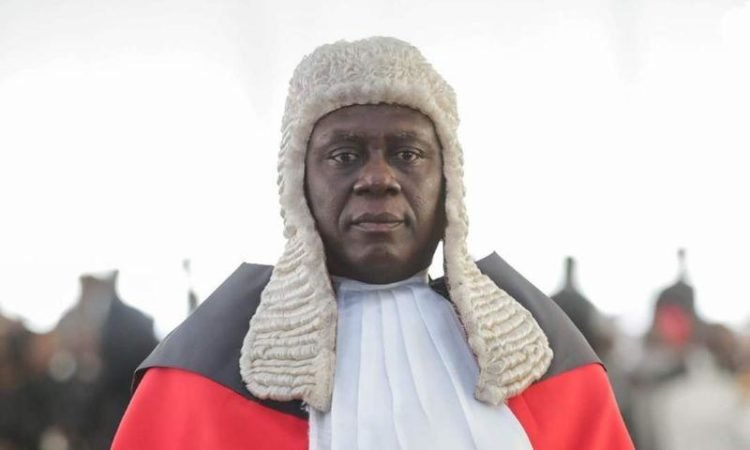
The Supreme Court has dismissed the use of a birth certificate as proof of Ghanaian citizenship.
This was the unanimous position of the seven justices after they mulled over a suit brought by a private citizen, Mark Takyi Banson.
The plaintiff had wanted the Supreme Court to compel the Electoral Commission to accept a birth certificate as a sufficient identification for registering to obtain a new voter ID card ahead of the 2020 general elections.
But after dismissing this relief on June 25, the Supreme Court has now released its full judgement.
It explained that the birth certificate “is not a form of identification. It does not establish the identity of the bearer. Nor does it link the holder with the information on the certificate.”
But the judgement gets even more damning as the judges branded it as even “worse than the [National Health Insurance] NHI card.”
The Supreme Court said the NHI card only identified the person by face and name but “makes no disclosure about the holder’s identification….and thus fails to meet the citizenship restriction test.”
The use of the NHI cards as a ID for registering for a voter’s ID card was rejected by the Supreme Court back in 2016.
The Supreme Court in the case of Abu Ramadan and Another v. the Electoral Commission in 2016, held that it was wrong for persons to use the National Health Insurance cards to get onto the electoral roll.
It was the EC that had allowed the use of the NHI cards as proof of citizenship in 2012.
But four years later, the Supreme Court ordered the EC to delete such persons. The Charlotte Osei-led Electoral Commission did indicate that it had complied, deleting as many as 56,00 voters.

With the court describing the birth certificate as worse than the NHI in proving citizenship, it raises serious questions about the work of the Birth and Death Registry.
While the Supreme Court rejects the birth certificate as proof of citizenship, the document is used by the Passport Office for granting a passport.
The Electoral Commission accepts the passport as proof of citizenship but not the birth certificate which is used to produce a passport.
But the confusion among the two state institutions gets worse.
The National Identification Authority issues the Ghana card which is the latest project by the government to finally settle the problems of determining citizenship.
The NIA accepts a birth certificate as proof of citizen.
The EC accepts the Ghana card as proof of citizenship but not the document which the NIA used to grant the Ghana card.
There are documented irregularities and illegalities in acquiring a birth certificate in Ghana.
The documentary ‘Paper Citizens’ produced by JoyNews detailed how officials of the Births and Deaths Registry were illegally issuing birth certificates to foreigners to help them acquire Ghanaian passports.
Some Ivorians, Cameroonians and Nigerians were the main beneficiaries of the criminal dealings. They pay as little as GH¢150, to acquire the certified documents, the documentary found.

These problems at the Birth and Death Registry is believed to be part of the reasons why the Electoral Commission has never used the birth certificate as proof of citizenship in issuing a voter ID card.
The constitutional instruments from C.I. 12, C.I. 75, C.I. 91, C.I 95 and the recent C.I 126 laid by the EC for the conduct of elections has never used the birth certificate as proof of eligibility.
The Supreme Court in its judgment appears to have acknowledged this situation.
It said “it is little wonder that a birth certificate has never been included as one of the documents to be used as evidence of identification by a person who applies to be a registered voter.”
The judgement described the request to include the birth certificate as proof of eligibility “a retrograde step.”
Ghana has a population of 30.2 million with 16.6m qualified to vote. But the citizenship question continues to be a controversial subject despite the Supreme Court judgment.















